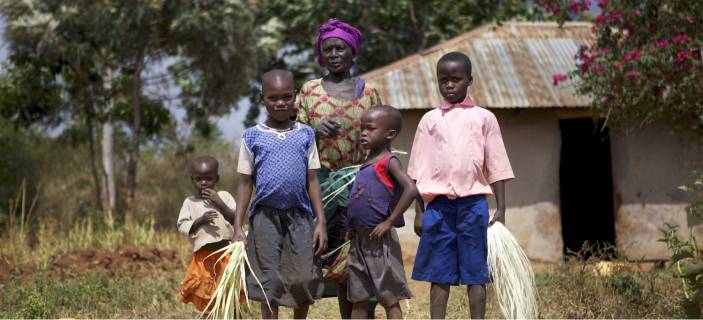After a lifetime of providing unpaid care for friends and family, older women often live in poverty with no one to care for them. Ageing is inevitable, but its gendered injustices are not.
The trend of global ageing
Over the first half of the current century, the global population aged 60 years and over is projected to double, reaching two billion by 2050. This raises important questions. Can health and pension systems live up to the challenge of population ageing? Who will care for the growing number of frail elderly persons?
These are hot political issues in many developed countries. But two-thirds of the world’s older people actually live in the developing world and by 2050, this share will have risen to nearly 80%.
The challenge of providing income security and care for all older people is daunting where poverty is widespread, health systems are already overburdened, and kinship, family and community support are increasingly stretched.
Ageing policies must respond to the needs and rights of older women
Ageing has a female face, but policies have been slow to respond to the rights of older women. Not only do women live longer than men, making them over-represented among the elderly, but they also face greater economic hardship.
A lifetime of discrimination has left many women with fewer savings and assets that could help them maintain an adequate standard of living in older age. In addition, pension systems grossly fail to protect them from poverty.
Globally, only about half of people above the retirement age enjoy access to a pension. In most countries, women are less likely than men to receive one, and where they do their benefit levels are usually lower.
In urban China, poverty rates among older women are three to four times higher than among older men. Even in the European Union, older women are 37% more likely than men to live in poverty.

But gender inequality in old age is as much about cash as it is about care. Prevailing gender norms and the fact that women tend to outlive the men they marry mean that they provide the bulk of unpaid care for ageing spouses. They also play an important role in caring for grandchildren, enabling their parents to engage in paid work or taking their place as primary caregivers when children are orphaned by HIV/AIDS or left behind in the context of migration.
While many older women take pride in this work, there is little social recognition and reward and the costs to their own physical and emotional wellbeing can be high.
It is ironic that women, who often spend a lifetime caring for others, end up poor. Pension systems fail to recognise this work, and they have no one to rely on when they themselves become frail.
But old age does not have to be a double whammy for women. UN Women’s flagship report Progress of the World’s Women 2015-2016 shows that putting in place the right policies can make a big difference.
Pensions can make a huge difference
Universal social pensions can be a powerful tool for providing basic income security and closing gender gaps in pension coverage. They establish the right to a pension for all older women and men, independent of their employment histories and family status.
Providing these benefits is affordable even in low-income countries. Bolivia, Botswana and Mauritius have proved this point, and studies estimate that in most sub-Saharan African countries such schemes would cost only around 1% of GDP.
The gains can be enormous and transcend generations. In South Africa, widely available social pensions have not only reduced poverty among older people, but also led to improvements in long-term nutrition and school attendance among the children they live with.
Care service provision vital
Affordable care services for older people are at least as important as pensions. Yet, such services are still rudimentary even in affluent countries, reflecting the fact that women’s unpaid care work is still taken for granted.
It is essential to assume collective responsibility for the care of our older generations by expanding public services and support mechanisms, to ensure the rights of both carers and cared-for with options ranging from home-based care to more institutionally based daycare, residential and nursing homes.
Putting these measures in place will require political commitment as well as a significant investment of resources. But let’s be clear: relying on women’s unpaid care work while relegating them to poverty in old age cannot be the alternative.
